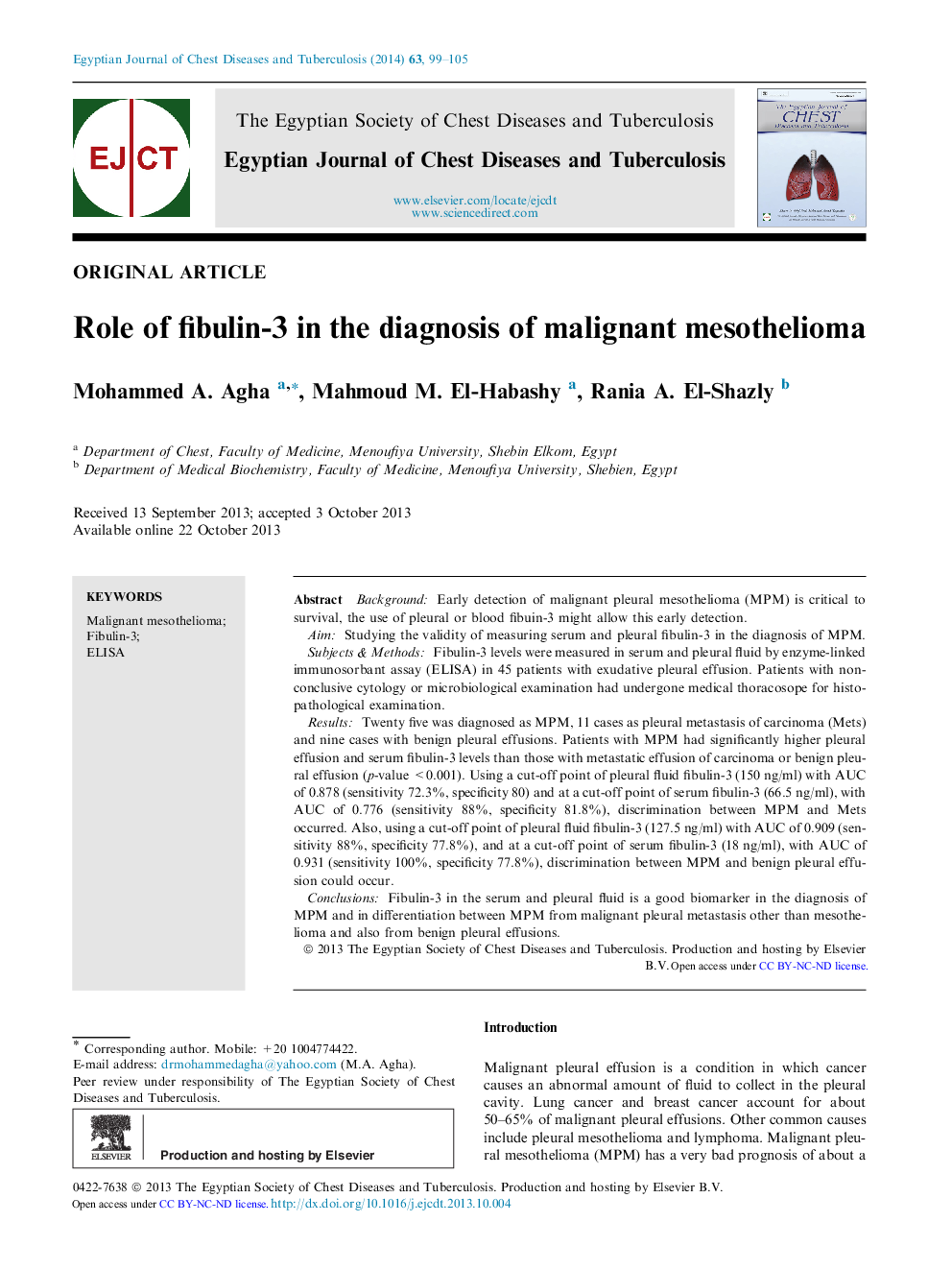| Article ID | Journal | Published Year | Pages | File Type |
|---|---|---|---|---|
| 3400141 | Egyptian Journal of Chest Diseases and Tuberculosis | 2014 | 7 Pages |
BackgroundEarly detection of malignant pleural mesothelioma (MPM) is critical to survival, the use of pleural or blood fibuin-3 might allow this early detection.AimStudying the validity of measuring serum and pleural fibulin-3 in the diagnosis of MPM.Subjects & MethodsFibulin-3 levels were measured in serum and pleural fluid by enzyme-linked immunosorbant assay (ELISA) in 45 patients with exudative pleural effusion. Patients with non-conclusive cytology or microbiological examination had undergone medical thoracosope for histopathological examination.ResultsTwenty five was diagnosed as MPM, 11 cases as pleural metastasis of carcinoma (Mets) and nine cases with benign pleural effusions. Patients with MPM had significantly higher pleural effusion and serum fibulin-3 levels than those with metastatic effusion of carcinoma or benign pleural effusion (p-value <0.001). Using a cut-off point of pleural fluid fibulin-3 (150 ng/ml) with AUC of 0.878 (sensitivity 72.3%, specificity 80) and at a cut-off point of serum fibulin-3 (66.5 ng/ml), with AUC of 0.776 (sensitivity 88%, specificity 81.8%), discrimination between MPM and Mets occurred. Also, using a cut-off point of pleural fluid fibulin-3 (127.5 ng/ml) with AUC of 0.909 (sensitivity 88%, specificity 77.8%), and at a cut-off point of serum fibulin-3 (18 ng/ml), with AUC of 0.931 (sensitivity 100%, specificity 77.8%), discrimination between MPM and benign pleural effusion could occur.ConclusionsFibulin-3 in the serum and pleural fluid is a good biomarker in the diagnosis of MPM and in differentiation between MPM from malignant pleural metastasis other than mesothelioma and also from benign pleural effusions.
